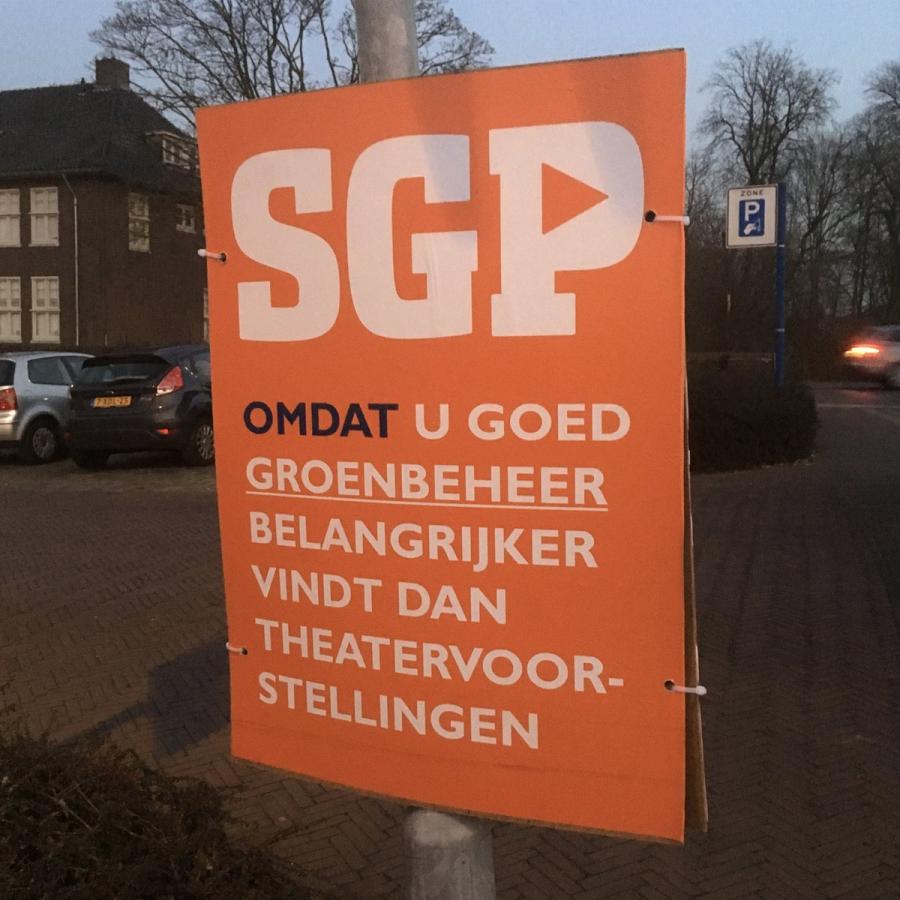
Dutch musicals' troublesome image or why socio-politically relevant Dutch musicals are rare
Are quality socio-politically relevant Dutch musicals simply not made or are we too ashamed to visit them?
In the column Daan Rutten wrote before attending Hamilton that night, he states that the Netherlands produce ‘Disney-like (re)productions initiated by producer Joop van de Ende’. He then compares Dutch musicals to those produced in the United States and Great Britain. There, according to Rutten, ‘musicals are being made with great quality and socio-political relevance’. Reading Rutten’s column made me wonder: do these musicals really exist only on Broadway and West End?
I believe that the problem in the Netherlands is not that these musicals aren’t made. The problem is that these musicals suffer from a downward spiral resulting in a bad image. Small theater companies that want to make a change in the commercialized musical business lead by Stage Entertainment (Joop van de Ende) hardly have a chance of survival and have to rely heavily on funding. Drastic changes in the allocation of these funds can kill these innovative companies. This happened in 2016 when the Dutch Fonds Podiumkunsten cut off subsidies to 23 theater companies for the period 2017-2020. So, are there really no box office hits of good quality and with socio-political relevance in the Netherlands?
The image of Dutch musicals
Rutten seems to have conveniently forgotten about one of the most successful Dutch musicals: Soldaat van Oranje. This Dutch musical about World War II resistance hero Erik Hazelhoff Roelfzema has sold out every evening since its premiere in 2010. By November 2017 2,5 million people had visited the show. The musical touches on issues of collective memory (Matters, 2016) and national identity (Elenbaas, 2013) and uses innovative technologies like a rotating stage. It seems an obvious example of a quality Dutch musical with socio-political relevance. So can’t Rutten and a large part of the Dutch population acknowledge that these musicals are produced?
The tone of voice Rutten takes in his article mirrors exactly the prevalent thought in society: Dutch musicals are not of high quality and merely offer entertainment. Over the years, Dutch musicals have transformed into a genre people feel slightly embarrassed to visit. In short, the image of Dutch musicals is far from positive. A prime example of this sentiment is this campaign banner the SGP political party used recently. It reads: ‘SGP, because you find park maintenance more important than theater shows’.

SGP campaign banner critical of theater
When politicians state that theater isn’t important for society this could be seen as merely reflecting a lack of vision. However, this statement has grave consequences. Innovative productions will have an even harder time getting their shows into the theaters. More importantly, the Dutch population is led to believe that theater is not worthy of the taxpayer’s money. This means that theatre producers will likely produce only shows that will attract large numbers of visitors, instead of stimulating what is innovative. Big companies like Stage Entertainment are just about forced to produce another Disney remake or a classic like Mama Mia. Soldaat van Oranje - created by New Productions - started as an innovative initiative, but ended up as a commercially wrung success, being extended over and over again. New Productions can now call itself one of the big commercial players. So, as Rutten carefully suggests, should we blame these companies for not making socio-relevant musicals?
Who’s to blame
There are multiple problems with the landscape of Dutch musicals. This makes it extremely complicated to put the blame on one person or company. I believe that this problem is not solely the fault of the behemoth Stage Entertainment or of New Productions. The image of Dutch musicals these days seems to have fallen into a downwards spiral with many of the stakeholders. Theater companies are forced to produce trite shows fearing they otherwise would miss out on audiences. Part of this audience in turn loses interest in Dutch musicals, prompting their politicians to exclaim populist slogans criticizing the theater sector. The circle is then completed: lacking funding to create innovative productions, companies will opt for commercially safer options. Whether this spiral can be broken is hard to say. Big producers could try to refresh the musical repertoire and not delve into what we have already seen, but one can’t blame them for not doing so. Perhaps most importantly, politics could embrace theater and musicals because good quality, socially relevant pieces can be an enrichment for society.
Not spreading damaging statements about theater in order to win votes would be an excellent start. However, reinstating funding for Dutch musicals is an absolute necessity. The Netherlands as a country is too small to nurture production houses that want to make innovative musicals without relying on funding. The innovative commercial Dutch 3D musical Sky that had to quit business early is an example of this. The Dutch musical market will not change itself overnight. Not all that is socially relevant is popular or profitable. Something fundamental has to change to overcome the neoliberalization of this field: musicals killed off prematurely and endlessly repeated classics are an obvious indication of this, and result in the troublesome image of Dutch musicals.
All that remains for us is to hope that in 2050 several new and innovative productions will be in the spotlight, and that we won't read that Soldaat van Oranje is extended for yet another year.
References
Elenbaas, L. (2013) Van boek naar film
Matters, I. (2016) Cultureel geheugen in Nederlandse musicals